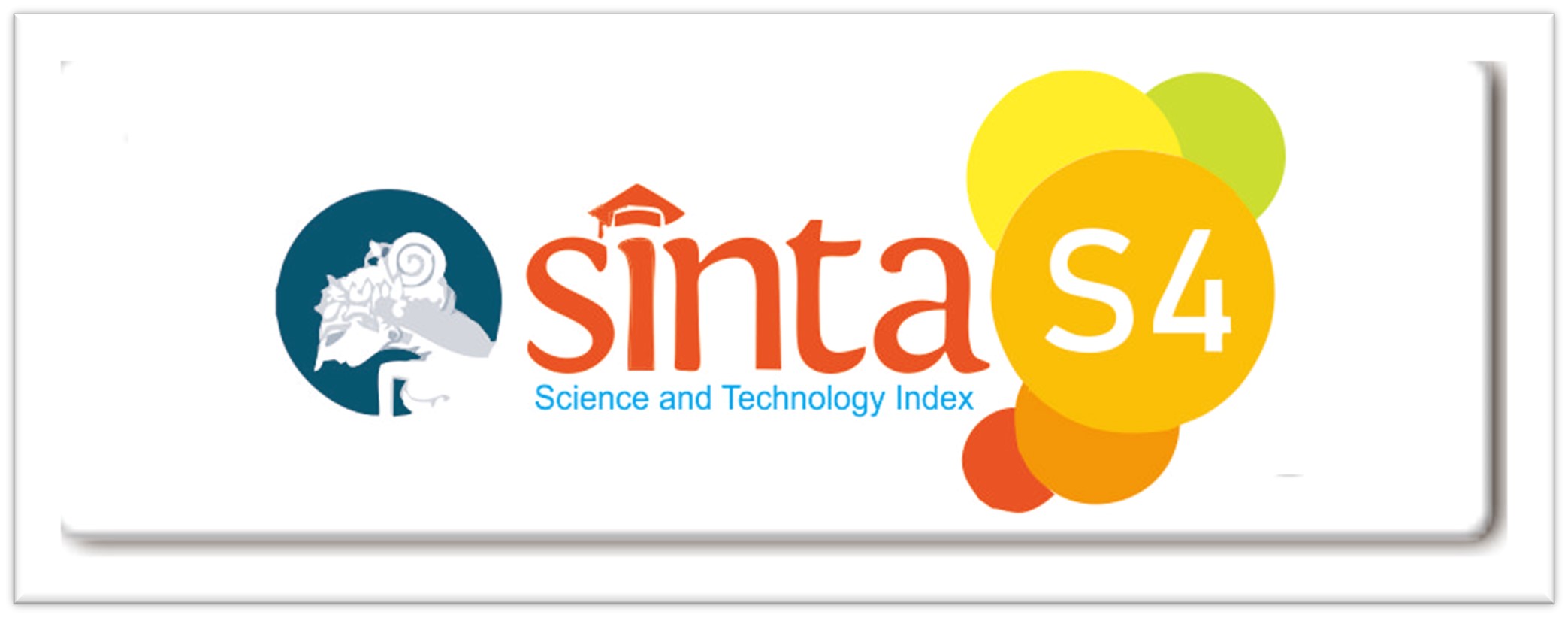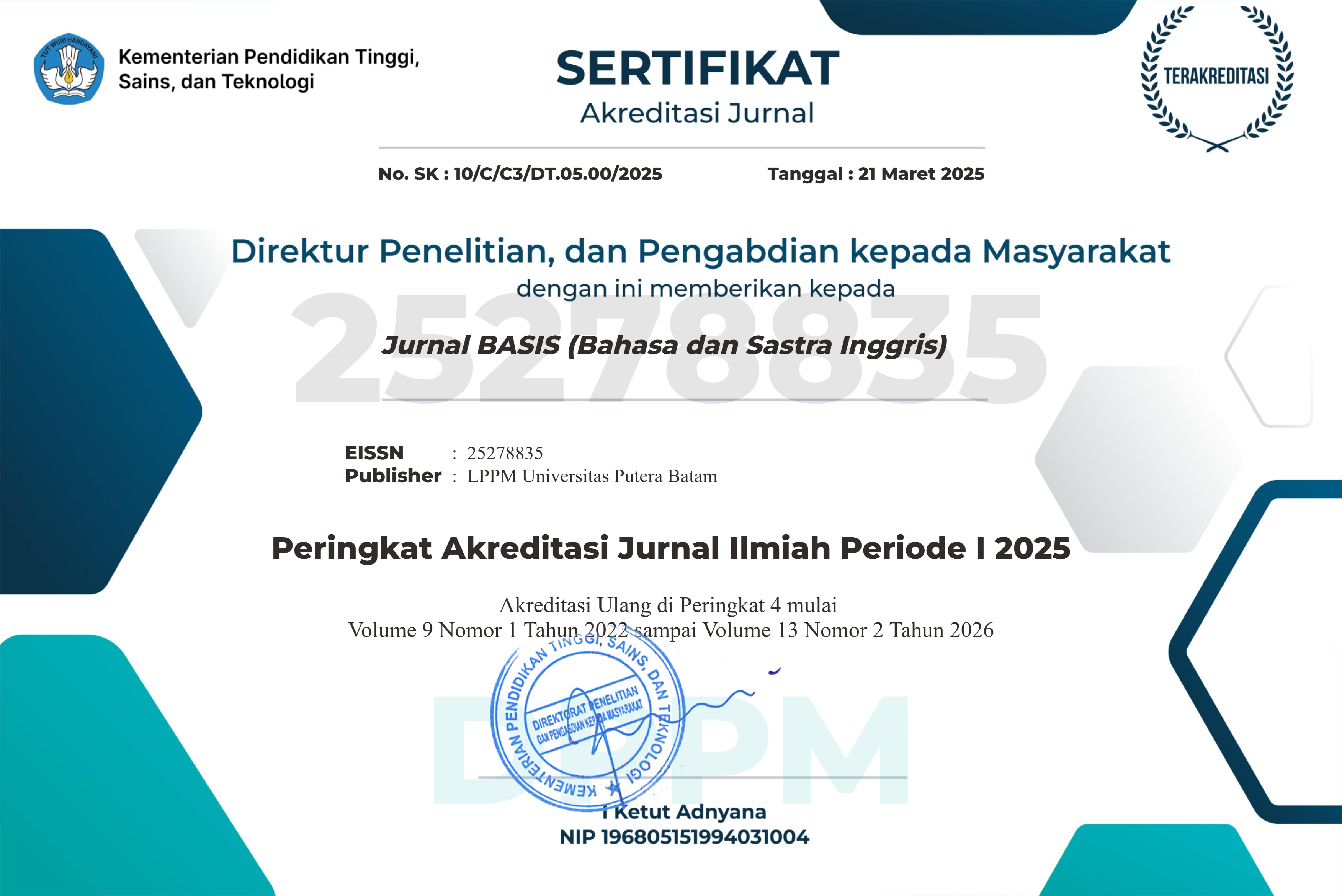TEACHING BY ALPHABET POEM IN ENHANCING STUDENT’S LEARNING STYLE
DOI:
https://doi.org/10.33884/basisupb.v8i2.3698Keywords:
Learning Style, Alphabet Poems, English Language TeachingAbstract
The aim of this paper is to determine the Alphabet Poem in teaching English. This paper investigates how Alphabet Poem knowledge can help to teach English in English Language Teaching (ELT). The author will conduct a literature review method. The purpose of this paper was to study how alphabet poem can enhancing student’s learning style. The method by using library research and a philosophical or pedagogical approach. The results showed that the role of alphabet poem in teaching English is suitable for learning styles (visual, auditory, and kinesthetic). English students will benefit from the knowledge of alphabet poems and how to teach teaching materials in three different learning styles. The applied linguistic content helps language learners better understand alphabet poems in ELT. The study draws the attention of teachers to be more concerned with the communication condition of students by the creative poem and to the fact that teachers cannot act as expected unless they are each of their learning styles. The teacher brings and teaches the alphabet poem to the students so the students who receive it will also imitate how to make the alphabet poem again so that through learning English it becomes a lesson that is liked by students and students can fluently in English.
References
Barnet, Sylvian. 2003. Short Guide to Writing about Literature. NewYork: Longman.
Bire, A. L., Geradus, U., & Bire, J. 2014. Pengaruh Gaya Belajar Visual, Auditorial, dan Kinestetik Terhadap Prestasi Belajar Siswa.
Brown, H. Doughlas. 2001. Teaching by Principles. San Fransico: Longman.
De Porter, Bobbi. 2003. Quantum Learning Membiasakan Belajar Nyaman dan Menyenangkan. Bandung: Kaifa
Gusrayani. 2014. Teaching English to Young Learners (Sebuah Telaah Konsep Mengajar Bahasa Inggris Kepada Anak-anak). Bandung: UPI Press.
Hakim, Lystiana Nurhayat. Socio-Affective Strategies in Enhancing Students’ Speaking Motivation. Jurnal Basis, [S.l.], v. 6, n. 1, p. 125-133, apr. 2019. ISSN 2527-8835. Available at: <http://ejournal.upbatam.ac.id/index.php/basis/article/view/1051>. Date accessed: 20 sep. 2021. doi: https://doi.org/10.33884/basisupb.v6i1.1051.
Multilingual Matters. Lee, J. S., & Lee, K. (2018). Perceptions of English as an international language by Korean English-major and non-English-major students. Jurnal Basis, v.20, p. n. 2, p. 186-189, jul. 2017. ISBN 978-1-78-309701-2. Available at: < https://www.tandfonline.com/doi/full/10.1080/13488678.2017.1345556>. Date accessed: 21 sep.2021. doi: https://doi.org/10.1080/13488678.2017.1345556.
Ridianto, Ridianto. Students’ Perception on Language Style Used By English Lecturers in The Classroom. Jurnal Basis, [S.l.], v. 5, n. 1, p. 39-44, apr. 2018. ISSN 2527-8835. Available at: <http://ejournal.upbatam.ac.id/index.php/basis/article/view/457>. Date accessed: 20 sep. 2021. doi: https://doi.org/10.33884/basisupb.v5i1.457.
Romaine, Suzanne. 1994. Language in Society. Oxford: Oxford University Press
Suyanto, K. 2008. English For Young Learners. Jakarta: PT Bumi Aksara.
Syafei. 2016. Teaching English to Indonesian Young Learners (Edisi Pertama). Jakarta: Kencana.
Trudgill, Peter. 1983. Sociolinguistics: An Introduction to Language and Society.London: Penguin.
Uno, Hamzah B. 2008. Orientasi Baru Dalam Psikologi Pembelajaran. Jakarta: Bumi Aksara.
Utami, Valisneria. EFL Learner’s Pronunciation Problems: A Phonological Analysis. Jurnal Basis, [S.l.], v. 7, n. 1, p. 171-184, apr. 2020. ISSN 2527-8835. Available at: <http://ejournal.upbatam.ac.id/index.php/basis/article/view/1788>. Date accessed: 20 sep. 2021. doi: https://doi.org/10.33884/basisupb.v7i1.1788
Published
Issue
Section
License













 JURNAL BASIS (BAHASA DAN SASTRA INGGRIS)
JURNAL BASIS (BAHASA DAN SASTRA INGGRIS)
